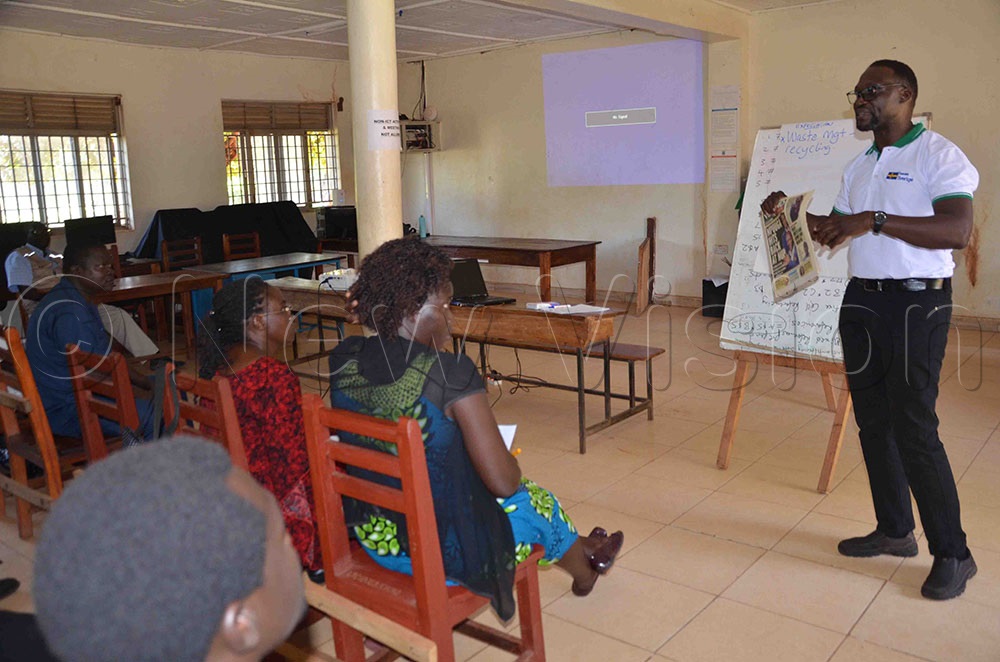'Uganda to lose over sh540 trillion to climate change in 40 years'
Mar 21, 2024
The Food and Agriculture Organisation of the United Nations says on average 800,000 hectares of crops in the country are destroyed by climate-related events including floods and dry spells every year.

Sidney Miria guiding the teachers on what to do on mitigating climate change/Photos by Patrick Okino

Patrick Okino
Journalist @New Vision
Uganda will lose $140-260b (about shillings 540 trillion) in an interval of 40 years in the agriculture and water sector if no action is taken to adapt to climate change, an official from FAO has said.
The Food and Agriculture Organisation of the United Nations says on average 800,000 hectares of crops in the country are destroyed by climate-related events including floods and dry spells every year.
“And more than 100,000 hectares of forest are destroyed annually,” David Ogwang, FAO's programme specialist and field office coordinator in northern Uganda, says.
Ogwang made the remarks during the Green Schools training organised by Vision Group in partnership with FAO through funding from the Swedish Embassy at Lira Town College in Lira City on Wednesday, March 13, 2024.

Sidney Miria of Vision Group appreciates RCC Egole Lawrence for opening the training on Wednesday
Vision Group and FAO are championing the Green Schools projects by engaging the learners in the fight against the impact of climate change. The training attracted secondary school teachers from the Lango and Acholi regions.
Ogwang added that the future projections indicate that rainfall will decrease by 132.9-188.2mm annually and temperature will rise by 1.6 to 5.3 degrees centigrade by 2080 across different regions of Uganda.
“Uganda will lose $140-260b between 2010-2050 as a result of climate-related events if no actions are taken,” he said.
He added that there is an increase in the number of disasters caused by natural hazards and on average the annual temperatures have risen by 1.3 centigrade since 1960: “There are areas with higher temperatures than others.”
He says the world is facing unprecedented changes in terms of occurrence and frequency of extreme events which are driven by climate such as food, droughts, heat waves, landslides and pest and disease outbreaks.
“The damage and loss presented by these extreme events are becoming unbearable and we need to act to reverse and survive,” he says.
For decades now, there have been a series of disasters in the country such as landslides, famine, floods, drought, and livestock disease among others majorly caused by climate change.

Soyabean plants affected by floods in Barkwac village, Ogur sub county, Lira district
Two years ago (2022) there was a report from the local leadership in the Karamoja region that at least 900 people, mainly elderly and children died of hunger-related causes.
According to the report by Kotido LC5 chairperson Paul Komol Lotee, in Kacheri sub-county and Kacheri town council 336 died, Nakapelimoru 88, Kamol 68, Napupum 35, Lochel Sub- County 7, Maru 45, and Kotido 53.

No Comment